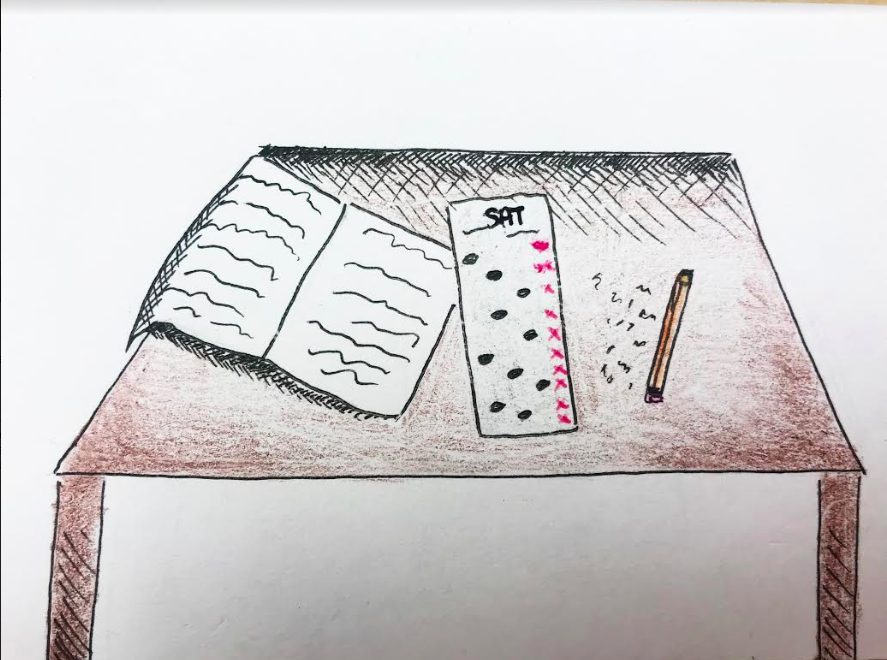When Status Equals SAT Success
For many students looking to attend a four-year university or college, taking the Scholastic Aptitude Test, or the SAT, is a part of their checklist to ensure admission into a college of their choice. In order to obtain scores that they want, many students take SAT classes to learn test-taking strategies as well as content that one can expect to be on the test. In recent times, however, the SAT has evolved from an accurate representation of a student’s knowledge to an evaluation of a student’s economic status.
“The SAT is one of the best ways to measure someone’s intelligence, but there are different factors such as test anxiety and choice of interest which can affect a student’s performance,” sophomore Alexandra Teats said.
Boasting 154 multiple choice and short answer questions according to PrepScholar, the SAT demands quick thinking and good test-taking skills. However, none of these aspects actually reflect how well someone has studied and applied knowledge throughout his or her high school career.
“There’s a little part of meaning [on the SAT], there’s a little part of background, there’s a little part of schooling. But there’s a lot of test-wiseness. There’s a lot of ‘how shrewdly you can play the game?’ There’s a lot that can be taught in coaching courses that has nothing to do with any of the skills you need to succeed in college or in life,” according to John Katzman, President and Founder of the Princeton Review via PBS.
In order to achieve higher scores, many students will enroll in a summer class to learn test-taking tricks. The results are clearly reflected in test scores, but these classes come with a great cost many cannot afford.
According to data released by the College Board in 2016, students living in households making over $200,000 a year averaged a score of 1,155 (out of a possible 1,600), while students living in households with incomes lower than $20,000 annually averaged a mere 888.
It is impossible to dispute that household income heavily correlates with SAT success. Many argue that all students can receive high scores by studying from free, online resources.
The College Board advertises Khan Academy as free SAT prep that is accessible online for every student. However, this does not even begin to compare to the undivided attention and individualized help that students can receive from expensive private tutoring, a privilege lower-income families cannot afford. As a result, children of lower-income families are less prepared for the SAT compared to those who spend their entire summer at expensive classes.
Due to the great advantages that affluent communities have when it comes to taking standardized tests, the SAT is no longer an accurate reading of a student’s knowledge. An alternative solution to create equity for all types of students is to eradicate standardized test scores from college applications and to replace them with mandatory teacher recommendations. In turn, these scores can be used as a way to measure where students are lacking in terms of college readiness. Although the SAT may not be a good indicator of intelligence, it still can have the benefit of making sure high school students are college-ready.
Your donation will support the student journalists of Portola High School. Your contribution will allow us to purchase equipment and cover our annual website hosting costs.

Helena Hu is the Co-Editor-in-Chief of the Portola Pilot this year. As Centerspread Editor and Social Media Director for the past two years respectively,...




